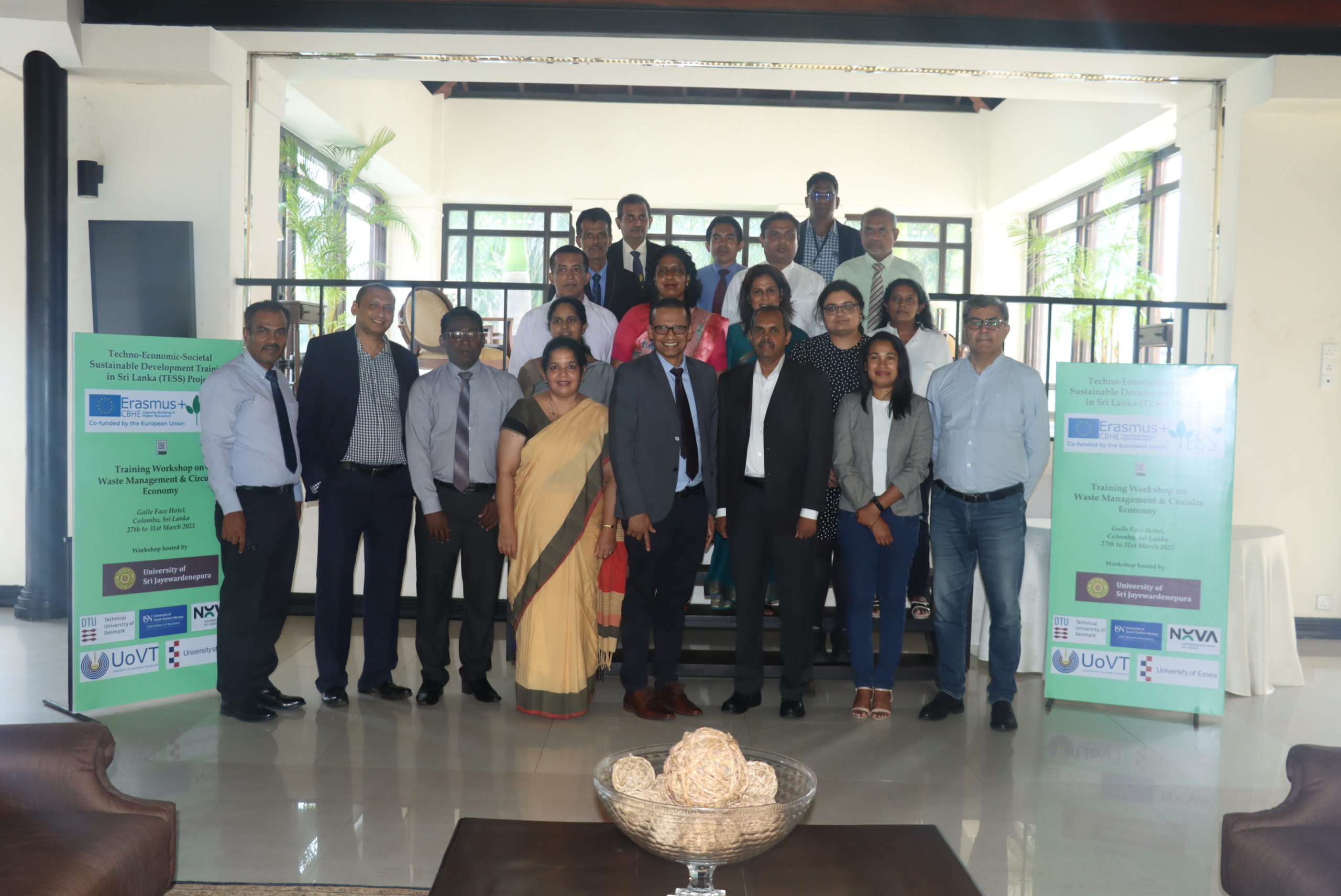An Erasmus+ Capacity Building project in Sri Lanka, led by University of South-Eastern Norway (USN), highlights the importance of international and interdisciplinary cooperation. YERUN universities, University of Essex and Universidade NOVA de Lisboa are also part of the project team.
Solid waste management receives increasing attention from academics and policy makers, as the municipal annual solid waste generation is anticipated to exceed 2.2 billion tonnes by the year 2025.
“In Sri Lanka, as in many parts of the world, waste disposal is a major problem”, says Associate Professor Chamara Kuruppu who is the primary coordinator of the project.
“The most common ways of disposing of waste have been burning and dumping garbage in collection yards. Municipal solid waste generated is mostly disposed of in “open dumps”, without any pre-treatment, cover or compaction”, he says.
These waste dumps contribute to a range of problems, such as pollution of local water sources or the soil, methane greenhouse gas emissions, accidents related to methane explosions and the spread of diseases related to waste dumps. If nothing is done, these problems are likely to exacerbate due to increased urbanisation.
The “Techno-Economic-Societal Sustainable Development Training in Sri Lanka” (TESS) project, seeks to address these issues, by establishing new study programmes in Sri Lankan universities in the area of circular economy, and waste treatment and valorisation, as well as working with local municipalities and companies to implement changes.
The importance of international cooperation
The project works to address a number of the UN Sustainable Development Goals, such as managing solid waste, producing renewable energy, eradicating poverty, hunger, and promoting gender equality and good governance amongst others. To contribute to these global challenges, international cooperation and an inter-disciplinary approach is crucial.
The Sri Lankan partners have the best insights into the situation locally, the need for study programmes, as well as which business models and technologies would work in the local settings. The European universities have a number of good practice examples from Europe and examples of up-to-date study programmes in the field. The international cooperation is important to create study programmes that are specifically designed for the local context and that will meet the demand for candidates that Sri Lanka needs.
A more circular economy
“Increasingly, we are moving away from the conception of waste solely being a problem and instead realizing that waste can be used to produce clean energy or heat and/or recycle waste to produce new products. It is also possible to recycle nutrients that can be used as natural fertilizer from waste or wastewater, to create a more circular economy. Using waste as a resource would be a big step forward, not only to get rid of waste, but also to improve health, safety and to encourage growth and new jobs in Sri Lanka”, tells Kuruppu.
To implement change, both the technological solutions and the development of new models of organisation or business models are crucial. By establishing the study programmes in Sri Lanka, the project aims to educate and develop a new generation of managers and engineers, who will have the necessary skills and competences to tackle the challenge of waste disposal head-on.
So far the TESS project has reached the following milestones:
- A new master programme in waste management and circular economy has been developed at the University of Sri Jayewardenepura,
- A master programme in waste treatment and valorisation has been developed at the University of Jaffna.
- Two four-year honours degree programmes, namely Sustainability Management and Circular Economy, and Waste Treatment and Valorisation were introduced at the University of Vocational Technology.
- 20 management and engineering academics representing four Sri Lankan universities have been trained at the four European universities.
- In addition, a professional network aims at fostering cross sector collaboration to address waste management challenges in Sri Lanka was founded at the University of Ruhuna in May 2023.
.
TESS is an Erasmus+ Capacity Building project in Higher Education, which is co-funded with 969 089 euros from the European Union. The project adopts an interdisciplinary approach to introduce new educational programmes in the discipline of waste management and circular economy, and waste treatment and valorisation in Sri Lanka. In addition, the collaboration among universities, municipalities, private sector entities and not-for-profit organisations is also promoted by this project. The USN School of Business is the primary coordinator of the project. The Sri Lankan partners in the project are The University of Sri Jayewardenepura, The University of Ruhuna, The University of Moratuwa, The University of Jaffna and the University of Vocational Technology. In addition to USN, the University of Nova, Lisboa, the Technical University of Denmark and University of Essex are the European universities in the project.










